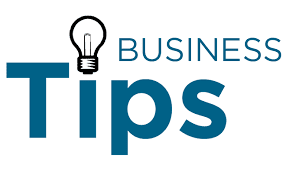
How York County Businesses Can Manage Finances in COVID-19 and Beyond
April 14, 2020
Financial literacy, the ability to manage cash flow and successful cash management is critical to small businesses in any economic climate. When faced with the challenges brought on by COVID-19 closures, the importance is only amplified. Fortunately, there are tools and resources businesses can use to take control of their finances now and in the future. In addition, our organization and the local SBDC is here to answer questions and to provide support and guidance.
Tips for Managing Business Finances During COVID-19
The local and federal response to COVID-19 has been to create new ways to financially support small businesses. Still, not everyone is utilizing these resources. For example, the Paycheck Protection Program allows for businesses to receive up to 2.5 times their eight-week payroll cost to be used to pay employees and overhead. If the funds are used for their intended purpose, and company payroll expenditures remain steady, the loan is forgivable. If any portion is not forgiven, the interest rate is a low 1%. In addition, businesses who have been impacted by COVID-19 can apply for the SBA’s Economic Injury Disaster Relief loan. Funds can be used for a wider purpose, including all regular operating expenses.
Businesses who want to operate as usual, but need an influx of cash to do so, may wish to explore either of the above options. In addition, there may be state, local and industry specific programs to evaluate. For example, the USDA Farm Service Agency Microloan Program and Emergency Farm Loans may be able to help those in the agricultural sector.
Manage Cash Flow
Businesses who receive loans through the SBA, a local bank or are relying on savings, should still actively manage their cash flow to ensure that funds last until the COVID-19 crisis has passed. Doing so requires staying on top of payments coming in, and reducing or managing expenses.
On the income side, tips include:
- Offering a discount for early payments
- Setting customers up on autopayments
- Having a set process for sending invoices and invoice reminders
On the expense side, tips include:
- Review credit cards and bank accounts to identify auto payments. Cancel unwanted subscriptions and payments for things that are no longer being used.
- Set temporary limits on expense accounts by capping or pausing expenses related to travel, client entertainment, etc.
- Restrict operating hours to reduce utility costs.
- Use what you have on hand instead of automatically ordering new supplies.
- Ask vendors if they will offer you a discount for paying early, with a credit card, etc.
- If companies are offering the option to delay payments, and cash flow is tight, take them up on their offer. For example, many cell phone companies are allowing customers to delay payments.
Evaluate Payroll
Payroll is often one of the largest expenses, if not the largest expense, that a business has. If business has slowed down, consider applying for the Paycheck Protection Program funds. Regardless, there are still ways to control payroll expenses, and even reduce it, without laying off employees. Consider the following -
- Eliminate all overtime.
- Close on holidays to avoid paying time-and-a-half, even if you normally stay open.
- Cut back everyone’s schedule by a couple hours a week. If doing so prevents layoffs, most employees will be supportive of the decision. Just be sure to communicate what you are doing, why and for how long.
Negotiate with the Landlord
Another major business expense is the cost of leasing space. If cash flow is restricted due to COVID-19, let the landlord know that right away and begin working towards a solution. Financially, it is typically better for a landlord to keep a tenant and so most should be willing to reach an agreement that would allow for tenants to remain financially viable. Some mutually beneficial solutions could include -
- Waiting to pay NNN expenses until the end of the year.
- Taking one or two months off of making payments, then paying for those skipped months in equal installments over the duration of the lease.
- Skipping several months of payments in exchange for renewing the lease early and agreeing to stay for a longer period of time.
Stay on Top of Your Money
When it comes to managing finances - knowledge is critical. Knowing what is happening with business income and expenses in real time can help to prevent a possible cash crunch. These tools can help you to stay on top of your money -
- Quickbooks online accounting, payment and payroll processing software
- Gusto app to manage payroll, taxes and benefits
- Square payment processing
- Expensify business expense tracking solution helps you to see what’s happening without manual data entry
Seek Help
Remember - resources are available to help businesses manage cash flow, reduce expenses and to make the changes that are necessary to remain financially viable.
Contact YCDC to learn how we can help you.
